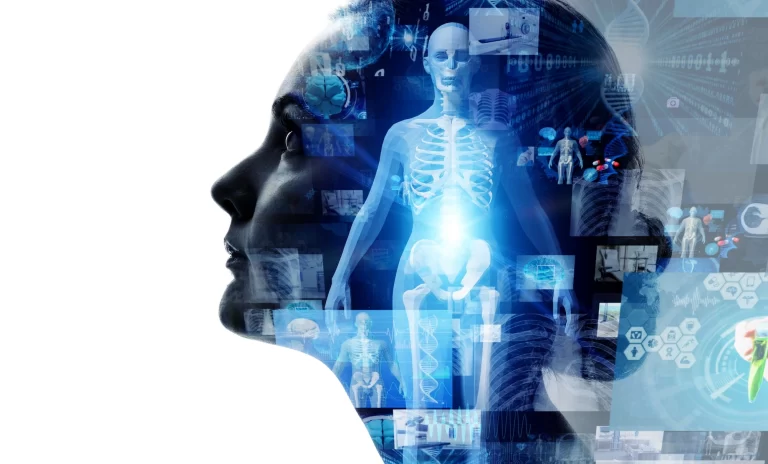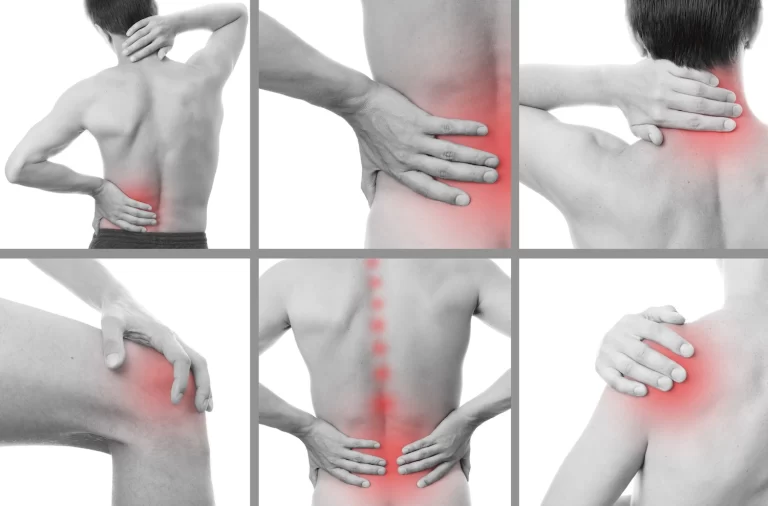In our journey towards a better well-being, the intersection of mind and body plays a pivotal role. Biofeedback, a technique that enables individuals to monitor and control physiological responses, offers a powerful tool for increasing mental health and managing various conditions. In this blog, we’ll explore the principles of biofeedback, its applications in mental health, and the transformative effects it can have on our overall well-being. Join us as we unlock the potential of biofeedback to empower individuals on their path to greater health.

Understanding Biofeedback
Biofeedback is a therapeutic technique rooted in the principle of self-regulation, allowing individuals to gain insight into their physiological processes and learn to control them. Here’s a closer look at how biofeedback works, and the different types of biofeedback commonly used:
Principles of Biofeedback – Biofeedback operates on the premise that our bodies constantly emit signals that reflect our internal physiological state. By monitoring these signals, known as bio-signals, individuals can gain valuable information about their bodily functions and learn to modify them consciously. This process involves the use of sensors and monitoring devices to measure specific physiological parameters, such as heart rate, muscle tension, skin conductance, and brainwave activity.
Types of Biofeedback – There are several types of biofeedback commonly used in clinical settings, each targeting different physiological systems:
Electromyography (EMG) Biofeedback – Measures muscle tension and activity, commonly used for relaxation training and stress management.
Skin Conductance Biofeedback – Monitors changes in sweat gland activity and skin conductance, providing insights into emotional arousal and stress levels.
Temperature Biofeedback – Tracks changes in skin temperature, offering information about blood flow and stress response.
Heart Rate Variability (HRV) Biofeedback – Analyzes variations in heart rate intervals, indicating autonomic nervous system balance and stress resilience.
Electroencephalography (EEG) Neurofeedback – Measures brainwave activity, helping individuals learn to regulate brain function and cognitive processes.

Biofeedback Training Process
Biofeedback training typically involves several key steps:
Assessment: The initial phase involves assessing the individual’s baseline physiological responses and identifying specific bio-signals to target during training.
Sensor Placement: Sensors or electrodes are placed on the individual’s body to measure the chosen bio-signals accurately. These sensors are connected to a biofeedback device that displays real-time feedback in the form of visual or auditory cues.
Feedback Sessions: During biofeedback sessions, individuals receive immediate feedback about their physiological responses, such as changes in muscle tension or skin conductance. They learn to modulate these responses through relaxation techniques, breathing exercises, or cognitive strategies.
Practice and Reinforcement: Through repeated practice and reinforcement, individuals gradually gain control over their physiological responses and learn to maintain desired states of relaxation, arousal, or attention.
Benefits of Biofeedback
Biofeedback offers numerous benefits for mental health and well-being:
Increased self-awareness – By providing real-time feedback on physiological processes, biofeedback enhances individuals’ awareness of their bodily sensations, emotions, and stress responses.
Stress Reduction – Biofeedback techniques promote relaxation and stress reduction by teaching individuals to modulate physiological responses associated with the stress response, such as muscle tension and heart rate.
Emotional Regulation – Biofeedback helps individuals regulate emotional arousal and enhance mood stability by learning to control physiological indicators of emotional states, such as skin conductance and heart rate variability.
Improved Cognitive Function – Neurofeedback training can enhance cognitive function and attention by teaching individuals to regulate brainwave patterns associated with focus, attention, and executive function.

Applications in Mental Health
Biofeedback has been increasingly recognized as a valuable tool for managing various mental health conditions and promoting emotional well-being. Some of the ways biofeedback is utilized in mental health include:
Stress Management – Chronic stress is a significant contributor to mental health problems such as anxiety, depression, and insomnia. Biofeedback techniques, such as heart rate variability (HRV) biofeedback and skin conductance monitoring, can help individuals learn to reduce stress levels by promoting relaxation, regulating breathing patterns, and modulating autonomic nervous system activity.
Anxiety and Panic Disorders – Biofeedback methods, such as electromyography (EMG) biofeedback for muscle tension and galvanic skin response (GSR) biofeedback for sweat gland activity, can be effective in reducing symptoms of anxiety and panic disorders. By learning to recognize and control physical signs of anxiety, individuals can gain a sense of control over their emotional responses and reduce the frequency and intensity of panic attacks.
Mood Regulation – Biofeedback techniques, including temperature biofeedback and heart rate biofeedback, can help individuals regulate mood and emotional arousal. By learning to modulate physiological indicators of emotional states, such as skin temperature and heart rate variability, individuals can enhance emotional self-regulation and resilience to stressors.
Attention Deficit Hyperactivity Disorder (ADHD) – Biofeedback approaches, such as electroencephalography (EEG) neurofeedback, have shown promise in improving attention and impulse control in individuals with ADHD. By training individuals to regulate brainwave patterns associated with attention and focus, neurofeedback can help reduce symptoms of inattention, impulsivity, and hyperactivity.

Effects on Mental Health Conditions
The effects of biofeedback on mental health conditions can be profound and multifaceted:
Reduced Symptoms – Biofeedback techniques have been shown to reduce symptoms of anxiety, depression, and stress-related disorders by promoting relaxation, improving mood regulation, and enhancing coping skills.
Improved Coping Skills – By providing individuals with real-time feedback on their physiological responses, biofeedback empowers them to develop effective coping strategies for managing stress, anxiety, and other emotional challenges.
Enhanced Self-awareness – Biofeedback promotes self-awareness by helping individuals recognize and understand the connections between their thoughts, emotions, and bodily sensations. This increased awareness allows individuals to identify triggers, manage symptoms, and cultivate greater resilience in the face of adversity.
Long-term Benefits – With regular practice and training, the benefits of biofeedback can extend beyond immediate symptom relief to long-term improvements in emotional well-being, resilience, and overall quality of life.
Conclusion
Biofeedback offers a powerful avenue for enhancing mental health and well-being by empowering individuals to gain awareness and control over their physiological responses. From stress management and anxiety reduction to mood regulation and attention enhancement, biofeedback techniques hold promise for addressing a wide range of mental health conditions. By harnessing the transformative effects of biofeedback, individuals can cultivate greater resilience, vitality, and emotional balance in their lives.
Elumind Centres for Brain Excellence is an integrated mental health centre offering solutions that can help you with your mental/brain health needs. To start your journey, book your FREE 15-MINUTE PHONE CONSULTATION. We are here for you.








